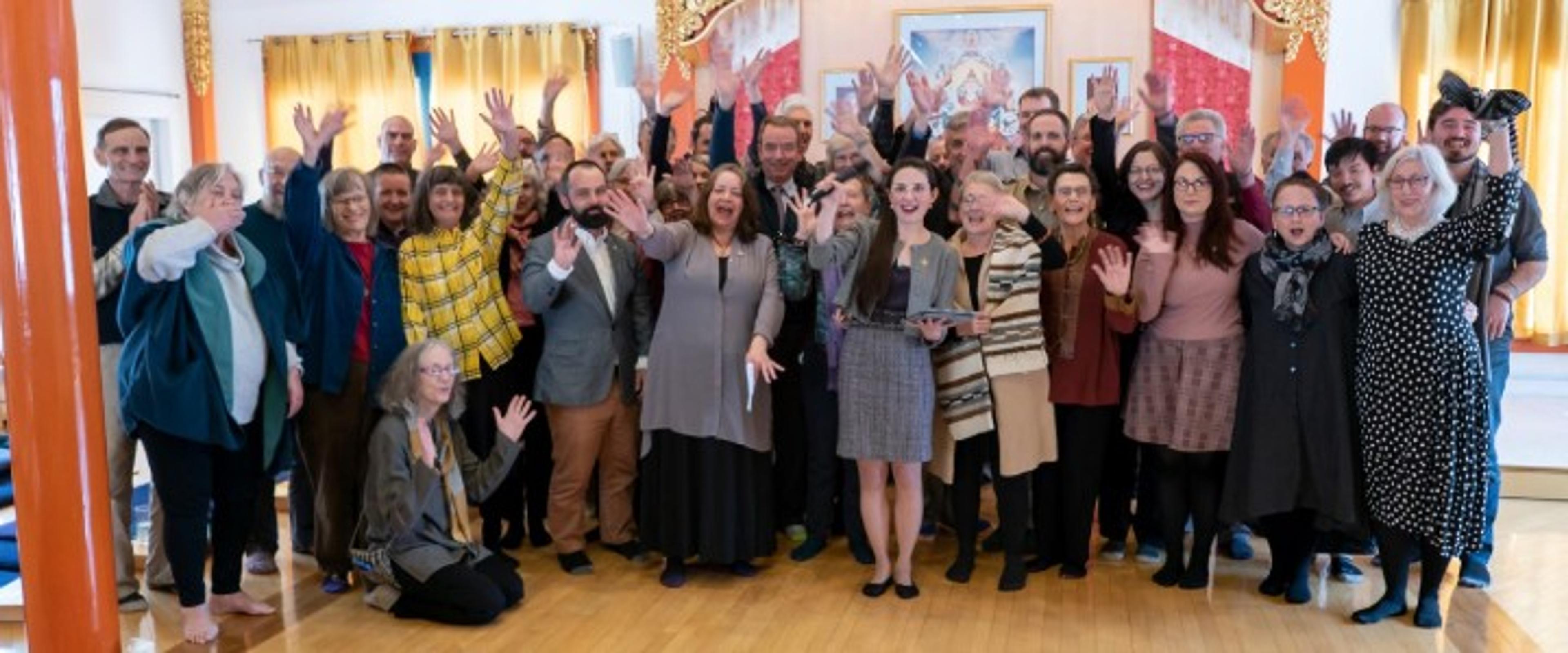
Like every Shambhala Center in the mandala, Karmê Chöling continues to be challenged by financial realities brought on by a loss in participants and the impact of a worldwide pandemic.
But Karmê Chöling is hoping that its exploration of a residential program will attract practitioners who want to live both economically and mindfully in a world emerging from coronavirus shut-downs.
“There’s got to be a way we can support our practitioners with a Shambhala Household model,” said Betsy Railla, who was seated as director in November 2019. “We are open to serving the community. As times change, we need to find the best way to respond to what people need.”
Railla sent out a survey last week asking how Karmê Chöling can best serve the mandala while adapting to changing times by integrating housing with the land center’s program offerings.
“I think we’ll always have programs,” Railla said. “Programs will still be very important, but not our only concern.
As early as Fall 2020, the plan is to accommodate full-time residents who want to work from home or embark on a year-plus long retreat with the support of acharyas and Karmê Chöling staff.
Housing options could include cooked meals and lodging, separate office space, access to Shambhala programs and the advantages of living in a community with regular practice sessions, multiple shrine rooms, 700-acres of forest and a nurturing and beautiful organic garden.
The survey describes meal-and-housing scenarios that begin at $1,200 a month, with the possibility of renting a separate three-bedroom home for $2,000 to $2,400 per month.
“The proposal represents a fundamental change in the way Karmê Chöling operates,” Railla said.
The staff, which is being asked to take significant cuts in stipends, will be re-tasked toward supporting online programs, retreatants and residents while maintaining facilities, the garden, the kitchen and programming.
Additional savings have been found in the kitchen, an upgraded phone system, housekeeping, legal fees and payments to Shambhala International. It is also making interest-only payments on its mortgage, which saves $1,000 a month.
Karme Choling recently received a federal loan of more than $76,000 from the Payroll Protection Program, which may ultimately be forgiven. “It currently remains a liability on the books,” said Finance Director Bill Barry. That money will cover eight weeks of payroll, and will last through the end of June. It’s unknown if the payroll program will be extended.
“In June, we’re going to have to ask staff to cut stipends,” Railla said. “Some people may not be able to stay.”
The goal is to reduce stipends by 50 percent from its current level of $30,000 per month.
With the fate of the summer programming season up in the air, Karmê Chöling has been operating on donations of about $16,000 per month, plus money repurposed from the campaign to build Tiger Lodge, with the permission of donors. The center has not had to dip into its line of credit.
By summer, Barry hopes total operating costs will be down to $43,000 per month from the current average of about $64,000. This is down from more than $100,000 per month last year when Karmê Chöling had a full programs calendar and a staff to match.
“Things are changing really drastically,” Railla said. “But Karmê Chöling has a strong group of people, both on staff and in our community, that are applying their creativity and dedication to our future. We are adapting, which can be uncomfortable, but I think KCL will be here for another 50 years.”
Contact us to give feedback on our exploration of a residential model for Karme Choling, and be sure to take the Karmê Chöling Residential Model Survey.
Was this helpful?
Share This





